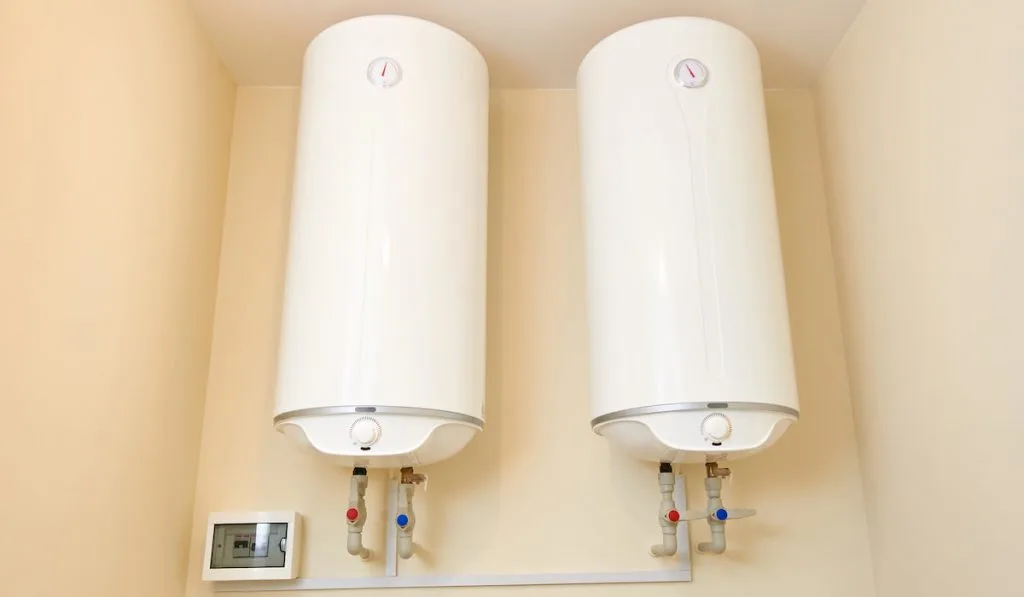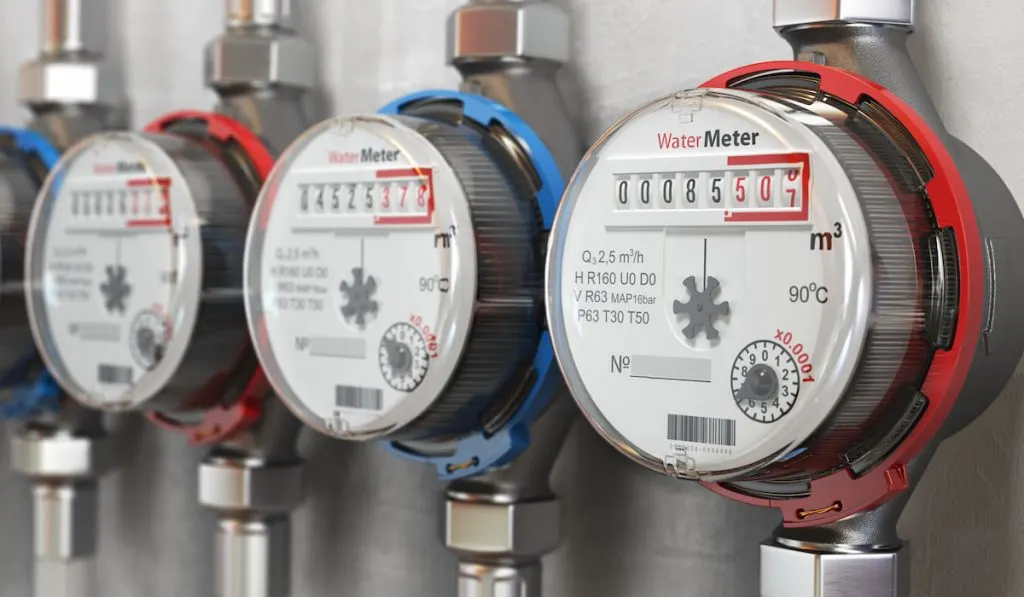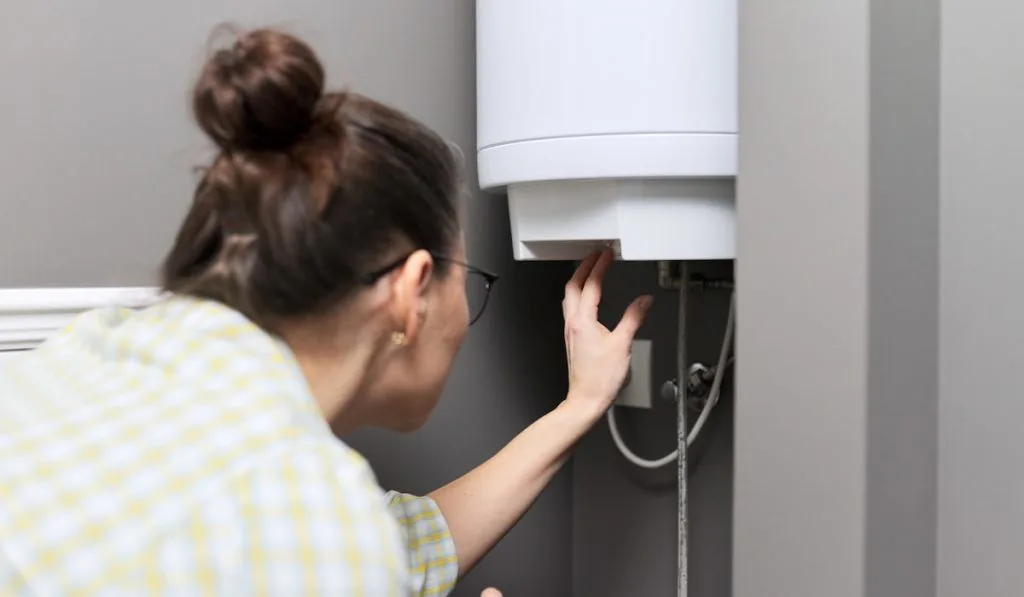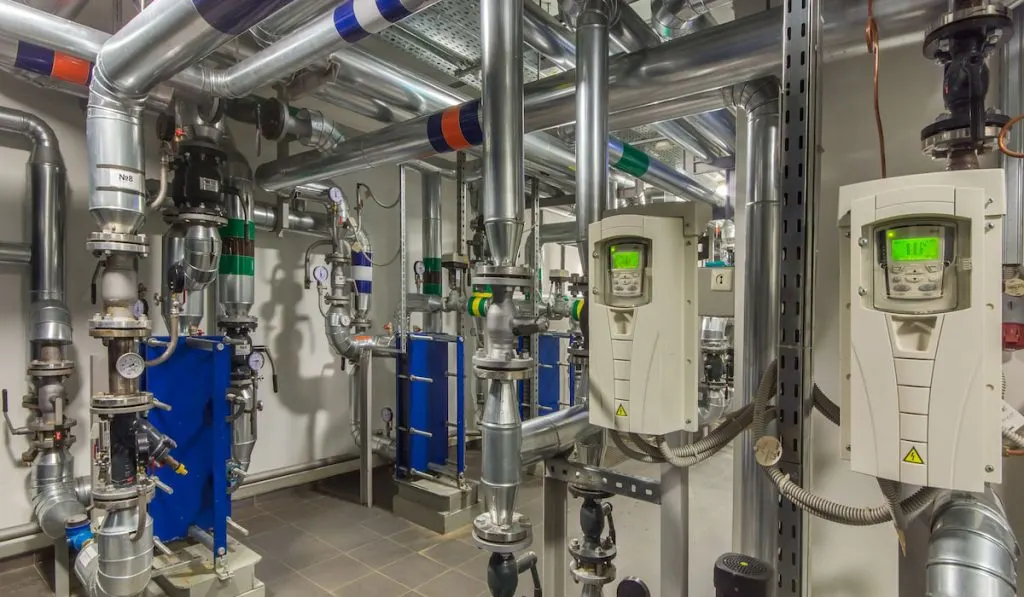Searching for a new apartment, whether it’s your first out of school or moving to a new city for a job, is always exciting.
You scout out the area, look for what’s around, find where you’ll go out to eat, grocery shop, and hit the gym. Before you get caught up in the excitement, though, there are some details you should iron out.
One of the main things people are focused on around new apartments is cost.
You’ve got rent, obviously, but there are also other costs associated with being in an apartment like utilities, parking fees, gym fees, and other costs. Water, in particular, is something that apartment buildings handle differently.
Some apartment buildings in multi-unit complexes, duplexes, fourplexes, and other setups install individual water heaters in every apartment.

However, some industrial water heater solutions distribute hot water throughout a building from a single place. The difference will likely make a difference in how you are billed and how much hot water you’ll get.
Let’s explore each option and how it can affect your decision on where to buy or rent your next apartment.
How Water Gets Into Apartments
Do apartments share water heaters? Not all of the time. Do they share water pipes? Again, not all of the time.
First, let’s talk about pipes. In almost every case, whether you’re living in a duplex in a suburban area or a downtown large apartment building, there is a water main that is hooked up to a public water supply.
Then, depending on your building, you can either have a single meter that feeds into the property and breaks off into separate units, or you can have individually-metered apartments. Here’s the difference:
Shared Water Meter

With a single meter, it’s impossible to tell how much water each unit is using. In these cases, the landlord or the property manager will likely offer water included in the rent or require that tenants pay a flat fee every month to cover the costs.
This is great news if you love long, hot showers, but it can be frustrating if you’re responsible for the costs because you have no way of controlling how much water other tenants in the building are using.
Most of the time, shared meters are found in older buildings where installing new individual lines to each unit is cost-prohibitive.
Individually-Metered Properties
Most modern apartments have individual water meters for each unit. That way you, and the landlord can track how much water is used every month.
Usually, the cost in these apartments for water is passed onto the tenant or apartment owner because it’s easy to track water use. People can change utilities into their names and handle billing themselves.
If Your Apartment Shares Water Heaters
If you’re doing a walkthrough of a potential apartment, you should certainly ask about the hot water source and setup.
If your landlord or property manager tells you that you’re sharing a water heater, ask how many units are sharing them, how large it is, and water the hot water supply is like.
Sharing a water heater with other apartments can be a huge pain, especially if it’s a water heater that’s typically designed for a single household.
You’ll run out of hot water faster than normal and heavy use will likely lead to more maintenance issues. That’s more downtime and contractors coming into your apartment to fix things when you’re away.
Apartments with Individual Water Heaters in Every Apartment
What type of water heaters do apartment buildings usually have?
Many apartments have water heaters inside. Traditionally, this has meant a large water heater tank stuffed in a closet or the laundry room behind the kitchen, etc.

It’s a good solution because you generally have a reliable supply of hot water, and you don’t have to share with anyone, but there are down drawbacks.
With an individual water heater, it takes up a lot of space that you could otherwise use for storage or as a small office. And, if you have any trouble with the hot water, then you’re going to have to schedule maintenance to come by and manage the repairs.
Newer apartments sometimes install tankless water heaters. These are essentially water heaters that heat water on demand instead of constantly warming a large tank of water that can be used at any moment.
There is going to be a longer lag time between when you turn on the water and it gets hot, but it’s smaller and more energy-efficient than traditional water heater models.
Larger Apartment Complexes Often Use Commercial Water Heaters
Larger complexes often have better ways of managing hot water supply. If it’s a rented-out building, then owners quickly become aware of some of the problems of having individual water heaters in each unit.
The tenants may like it, but these traditional water heaters are prone to maintenance issues, and replacing them can be costly.
Instead, a lot of complexes will opt for larger, commercial hot water heaters that can supply hot water throughout the building.
You’ll find these commercial systems in newer buildings because they can help developers keep construction costs lower.

Even though the system is much more expensive than a traditional water heater, if you’ve got one hundred apartments in a building, then the owners will save by not having to buy one hundred water heater units.
They also typically come with warranties and service plans that the installation companies agree to before installment. That takes all of the repair and maintenance off of their plate and they have someone to call whenever anything goes wrong.
What to Do if Your Apartment Doesn’t Have Hot Water / Enough Hot Water
Living in an apartment that shares a single hot water tank with other units can be frustrating. You will find that you are gaming when you can shower during the day and the best time to cook based on neighbors’ schedules.
If there are recurring issues with hot water supply, you should talk to your landlord or property manager. Ask them to find a solution. They could, if there is space, install a water heater in your unit or find some other workaround.
However, if they are unresponsive, then you should escalate the situation. Make a formal complaint in writing and keep a record. If they are not meeting their obligations written out in the lease, then you likely have cause to move out and terminate your lease.
